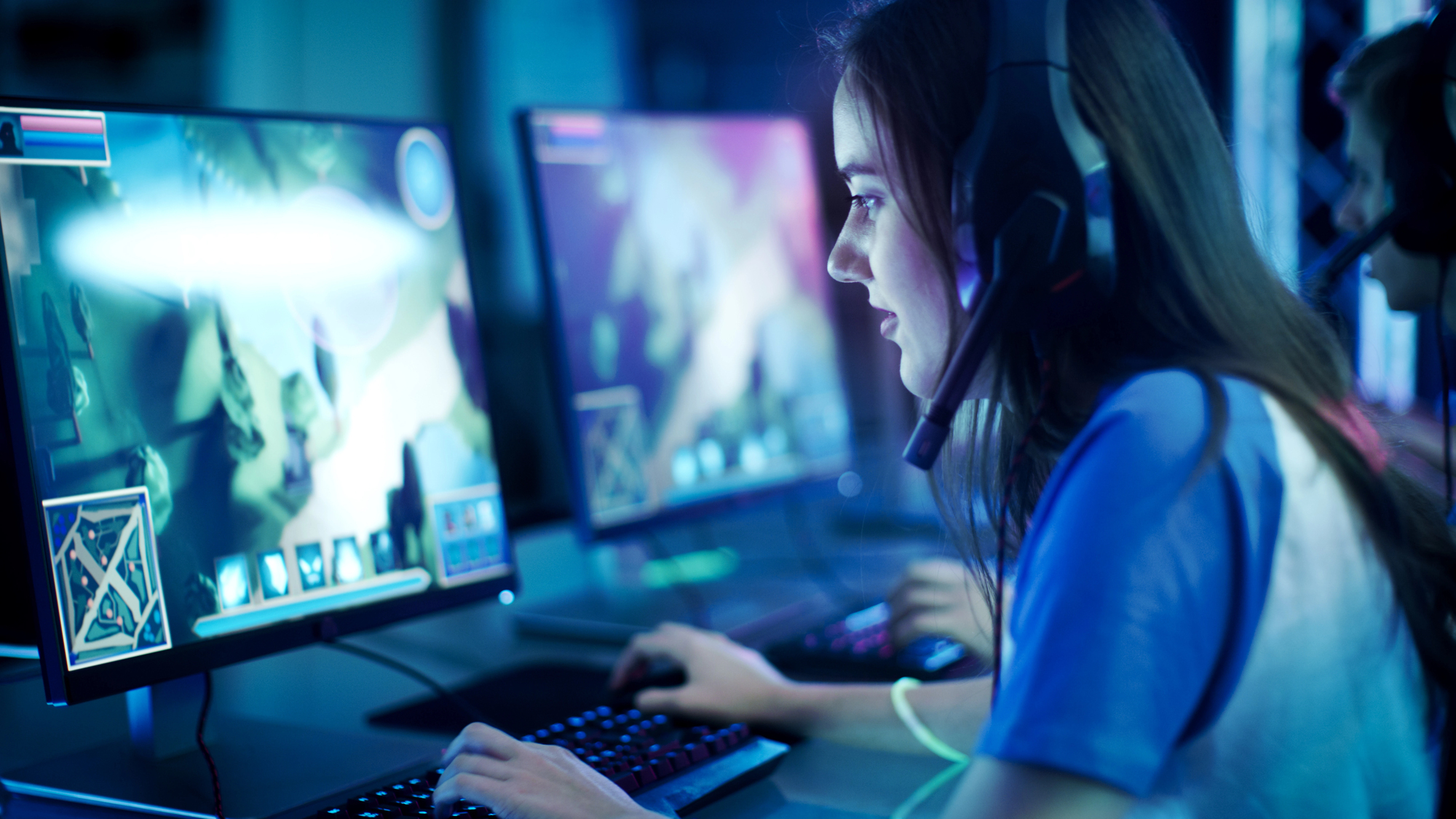Video games are reshaping how we approach work and career development. The gaming industry is influencing problem-solving, strategy, and creativity in professional settings. These skills, honed through gameplay, are becoming increasingly valuable in the workplace.
The future of gaming is intertwined with emerging technologies like virtual reality, augmented reality, and artificial intelligence, which are set to transform both leisure and professional environments. These advancements are blurring the lines between play and work, creating new opportunities for skill development and innovation.
As gaming continues to evolve, it is shaping cultural forces beyond entertainment. The impact extends to social interactions, technological progress, and learning methodologies. This shift is prompting businesses to reconsider traditional approaches to training, collaboration, and problem-solving.
Emergence of Immersive Gaming Technologies
Virtual and augmented realities are transforming gaming experiences. Advanced graphics and realism push the boundaries of what’s possible in digital worlds.
The Rise of Virtual and Augmented Realities
Virtual reality (VR) and augmented reality (AR) are reshaping how players interact with games. VR headsets transport users to fully digital environments, allowing for unprecedented immersion. AR overlays digital elements onto the real world, blending physical and virtual spaces.
These technologies enable new forms of gameplay and storytelling. VR games often focus on first-person experiences and physical interactions. AR applications can turn everyday surroundings into playgrounds for digital characters and objects.
As hardware improves and becomes more affordable, VR and AR are likely to reach wider audiences. This could lead to innovative game designs that further blur the lines between digital and physical realities.
Next-Gen Graphics and Realism
Advancements in graphics technology continue to push the boundaries of visual fidelity in games. Ray tracing simulates realistic lighting and reflections, creating more lifelike environments. High-resolution textures and detailed character models contribute to increasingly photorealistic visuals.
Artificial intelligence enhances game worlds by improving non-player character behaviours and generating dynamic content. This leads to more responsive and varied gameplay experiences.
Cloud gaming services allow for complex graphics processing to be offloaded from local devices. This enables high-quality visuals on a wider range of hardware, potentially expanding access to graphically intense games.
As these technologies mature, players can expect even more immersive and visually stunning game worlds in the coming years.
The Cultural Impact of Gaming
Video games have become a powerful force shaping society and culture. They influence education, mental health, social interactions and community building in significant ways.
Gaming as a Tool for Education and Mental Health
Video games are increasingly used in educational settings to enhance learning. Studies show that games can improve problem-solving skills, boost engagement and make complex topics more accessible. For example, history games allow students to experience past events firsthand.
In healthcare, games are used to treat various mental health issues. Puzzle games may help reduce anxiety, while virtual reality experiences assist in treating phobias. Some games are specifically designed to teach coping mechanisms for depression or ADHD.
Research suggests that moderate gaming can improve cognitive functions like spatial awareness and decision-making. However, excessive gaming may lead to addiction and negative impacts, so balance is key.
Social Dynamics and Community Engagement
Online gaming has created vast virtual communities where players interact, collaborate and compete. These spaces foster new forms of socialisation and friendship, especially valuable for those who struggle with in-person interactions.
Multiplayer games encourage teamwork and communication skills. Players must coordinate strategies, share resources and support teammates to succeed. These skills often translate to real-world scenarios.
Gaming fandoms have become significant cultural forces, influencing art, music and fashion. Cosplay, fan fiction and gaming conventions bring enthusiasts together, creating vibrant subcultures.
The gaming industry has made strides in representation, featuring diverse characters and storylines. This helps players from various backgrounds feel seen and valued in gaming spaces.
Economic Transformations in the Gaming Sector
The gaming industry has undergone significant economic changes, driven by technological advancements and shifting consumer preferences. These transformations have reshaped business practices and created new opportunities for growth and collaboration.
Innovative Business Models and Monetisation
Free-to-play games have become a dominant force in the gaming market. This model allows players to download and play games at no cost, with revenue generated through optional in-game purchases. Mobile games like Pokémon GO have demonstrated the potential of this approach, attracting millions of users and generating substantial profits.
In-game advertising has also emerged as a valuable revenue stream. Game developers partner with brands to display ads within their products, creating a win-win situation for both parties. This approach is especially effective in mobile and casual games, where players are more receptive to short ad breaks.
The Convergence of Gaming and Other Industries
The gaming sector has increasingly intersected with other industries, creating new economic opportunities. Esports has grown into a billion-pound industry, attracting investment from traditional sports teams, broadcasters, and advertisers.
Telecommunications companies have recognised the potential of gaming to drive network usage and customer loyalty. Many now offer gaming-specific data plans or bundle popular titles with their services.
Artificial intelligence is transforming game development and player experiences. AI-powered tools help create more realistic graphics, generate dynamic content, and personalise gameplay. The global generative AI in gaming market is projected to grow from £722 million in 2022 to over £5.5 billion by 2032.
Artificial Intelligence and Machine Learning in Gaming
Artificial intelligence and machine learning are transforming video game development and player experiences. These technologies enable more sophisticated gameplay mechanics, adaptive difficulty levels, and personalized content for users.
AI-Driven Game Development and NPC Behaviour
AI in gaming is revolutionising how non-player characters (NPCs) behave and interact with players. Advanced AI algorithms allow NPCs to exhibit more realistic and dynamic behaviours, responding intelligently to player actions and environmental changes.
AI-powered procedural content generation creates vast, unique game worlds and quests, reducing development time and costs. This technology allows for endless variations in gameplay experiences, keeping players engaged for longer periods.
Game developers are using AI to automate testing processes, identifying bugs and balancing issues more efficiently than manual methods. This leads to higher quality games with fewer post-launch patches required.
Machine Learning and User Experience
Machine learning algorithms analyse player behaviour data to create personalised gaming experiences. Games can adjust difficulty levels, recommend in-game items, or suggest new content based on individual player preferences and skill levels.
AI technologies are enhancing graphics and audio in video games. Machine learning models can upscale textures, improve frame rates, and generate realistic sound effects in real-time, creating more immersive gaming environments.
Predictive analytics powered by machine learning help game companies forecast player churn and identify potential monetisation opportunities. This data-driven approach allows developers to make informed decisions about game updates and content releases.
AI chatbots and virtual assistants are improving player support services, providing instant responses to common queries and freeing up human support staff for more complex issues.












